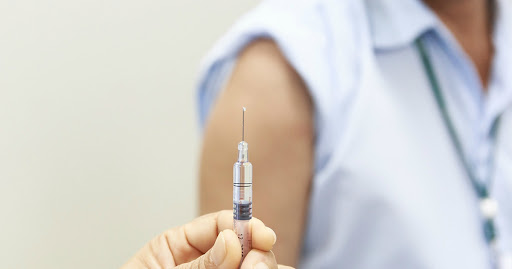According to a new study, people who have kept “up to date” with COVID-19 vaccinations are more likely to become infected.
Researchers at the Cleveland Clinic in Ohio found that vaccinated people who had received one of the updated bivalent vaccines had a higher risk of contracting the infection than those who had not received it, a group that included both vaccinated and unvaccinated people.
The higher risk held even after adjusting for factors such as age and job position.
“This study highlights the difficulties of relying on the protection offered by a vaccine when its effectiveness decreases over time with the emergence of new variants antigenically very different from those used to develop the vaccine“said Dr. Nabin Shrestha and the other researchers.
The Omicron XBB subvariant became dominant in the US in January. The bivalent vaccines from Moderna and Pfizer target the BA.4 and BA.5 strains, as well as the older Wuhan strain.
The study, published on the medRxiv server (pdf) June 12 before peer review, included 48,344 Cleveland Clinic employees, 47 percent of whom had evidence of a prior infection. Employees were included if they were employed in the fall of 2022 when bivalent vaccines first became available, and were still employed when the XBB strain and its lineages became dominant. The study was conducted from January 29, 2023 to May 10, 2023. People whose age and gender were not available were excluded.
By analyzing vaccine effectiveness with a Simon-Makuch risk graph, the researchers considered each employee as “out of date.” When a worker received a bivalent dose, he started to be considered “updated”. Employees ceased to be counted if they were fired.
During the study period, 1,475, or 3% of the clinic’s employees, became infected.
Being “out of date” was associated with a lower risk of infection, with an unadjusted hazard ratio of 0.78 and an adjusted hazard ratio of 0.77. A hazard ratio less than one means a lower risk of infection.
The researchers didn’t provide vaccine effectiveness estimates because they didn’t calculate how many of the infected employees hadn’t been vaccinated, Shrestha told The Epoch Times by email. Most of the employees, 87%, had received at least one dose of the vaccine.
The Cleveland Clinic has been offering employees testing and vaccinations for the duration of the COVID-19 pandemic. The nonprofit healthcare facility began offering doses of the bivalent vaccine on September 12, 2022, shortly after regulatory clearance and the U.S. Centers for Disease Control and Prevention’s (CDC) recommendation for nearly everyone vaccinated. .
The CDC has defined someone who has received all of the recommended vaccine doses as “up to date”. The definition has changed several times during the pandemic. At first it was a primary series. A monovalent booster was added later.
As of April, being “updated” for people over the age of 5 means having received a bivalent dose. For children aged six months to four years, that means having received two doses of the Moderna vaccine or three doses of the Pfizer vaccine. The latest update came as authorities replaced older vaccines with bivalents, which were previously only available as boosters.
The Cleveland Clinic researchers wanted to see if people who fit the current definition of “up to date” were better protected than those who aren’t, given the lack of data for bivalent vaccines, which were licensed without trial data. and to date they do not have estimates on the efficacy of clinical trials. Previously, researchers had found that the more doses you receive, the more likely you are to become infected.
The fact that being “up to date” doesn’t equate to better protection stems from the fact that the bivalent isn’t effective against XBB lineages, the researchers said. The other reason, according to the researchers, is that the CDC does not formally acknowledge in its vaccination guidance the protection conferred by a prior infection, known as natural immunity.
A key point is that some untrained people became infected with Omicron subvariants BA.4, BA.5 or BQ, which helped give them better protection against XBB, the researchers said.
“It is now known that SARS-CoV-2 infection provides more robust protection than vaccination,” the researchers said, citing three studies, including one they conducted. “Thus it is not surprising that not being ‘up to date’ as defined by the CDC has been associated with a higher risk of previous infection of the BA.4/BA.5 or BQ lineage, and therefore with a lower risk of COVID -19, with respect to being ‘up to date’, while the XBB lineages were dominant”.
Thanks to our Telegram channel you can stay updated on the publication of new articles from Economic Scenarios.
⇒ Register now ⇐
